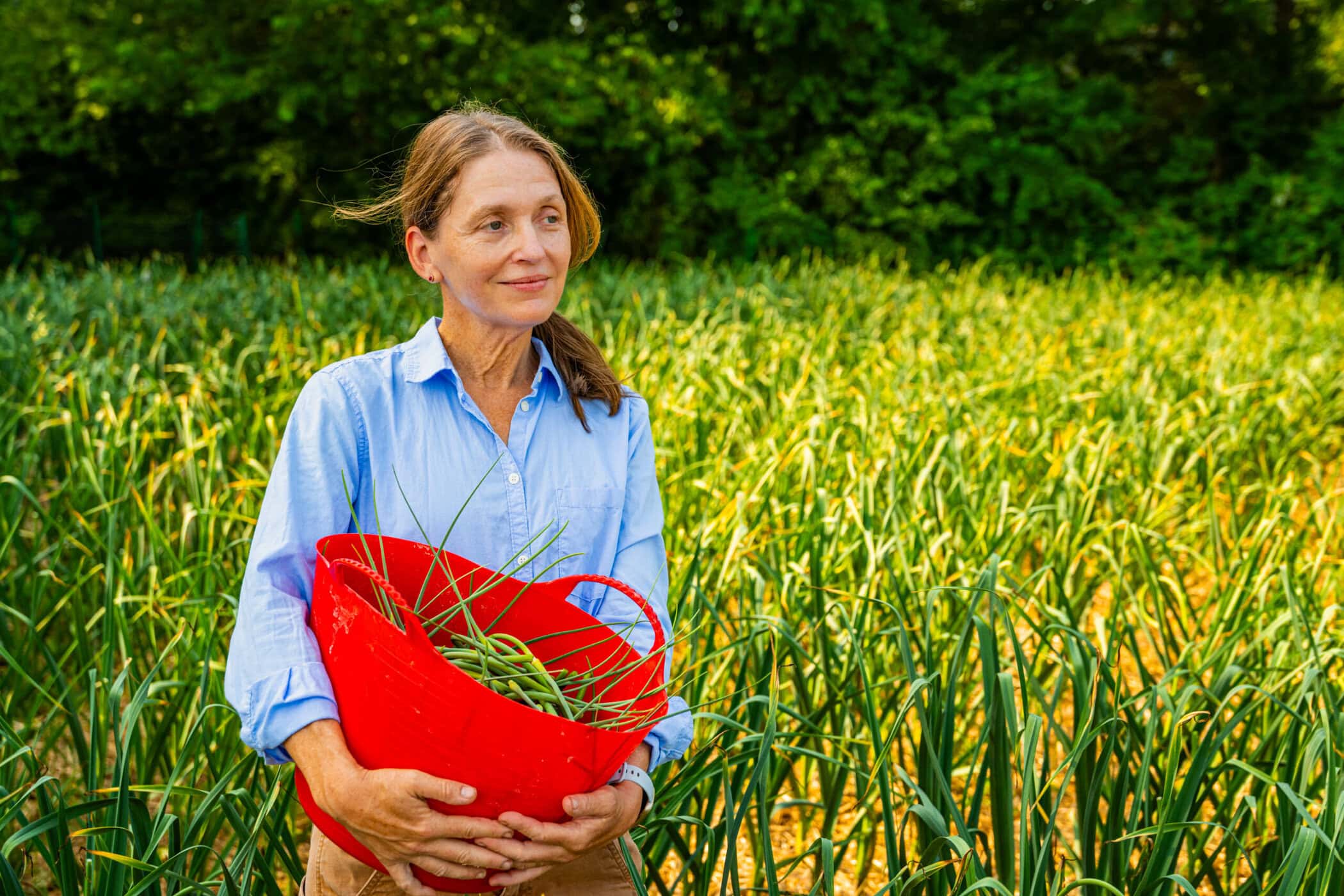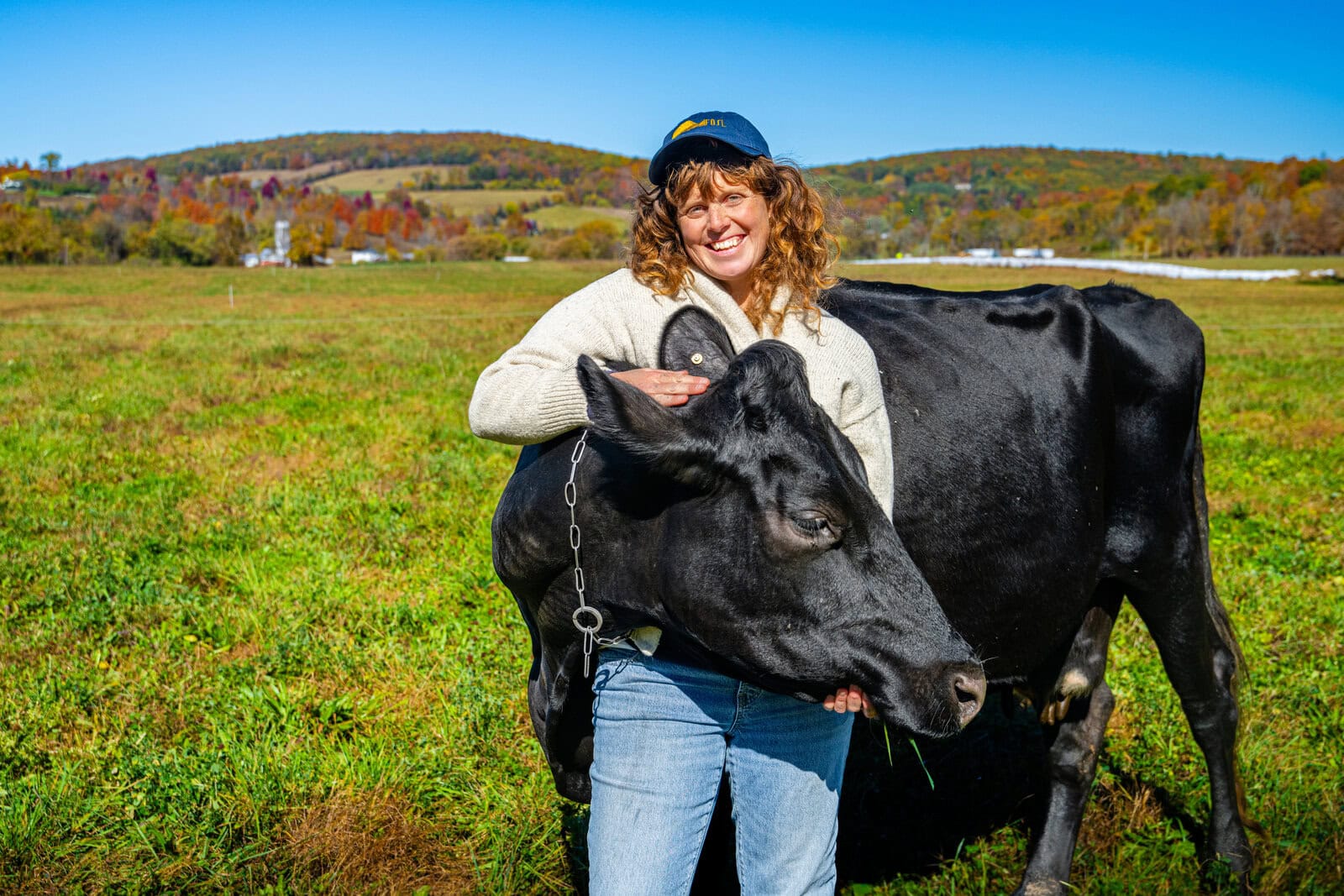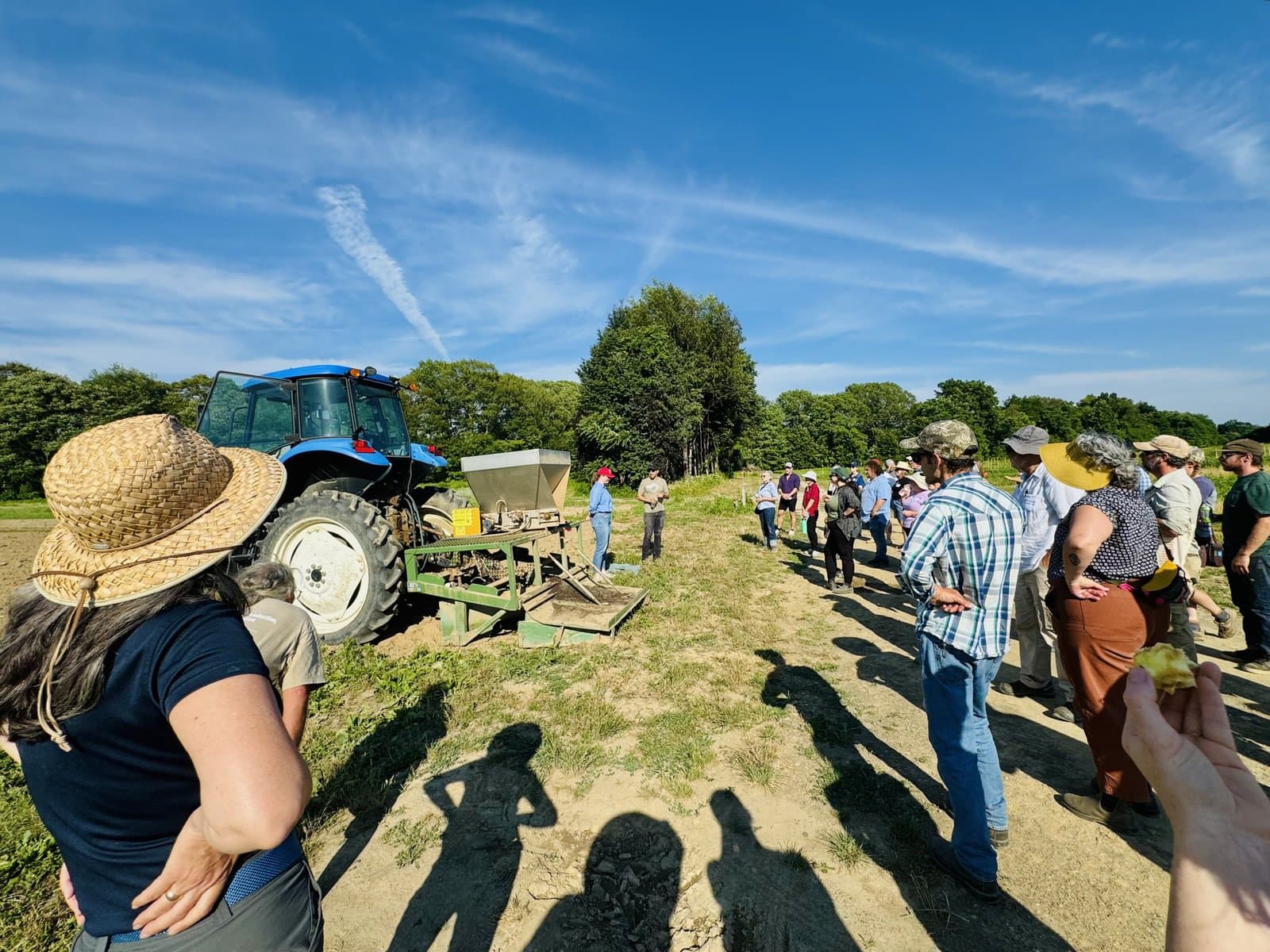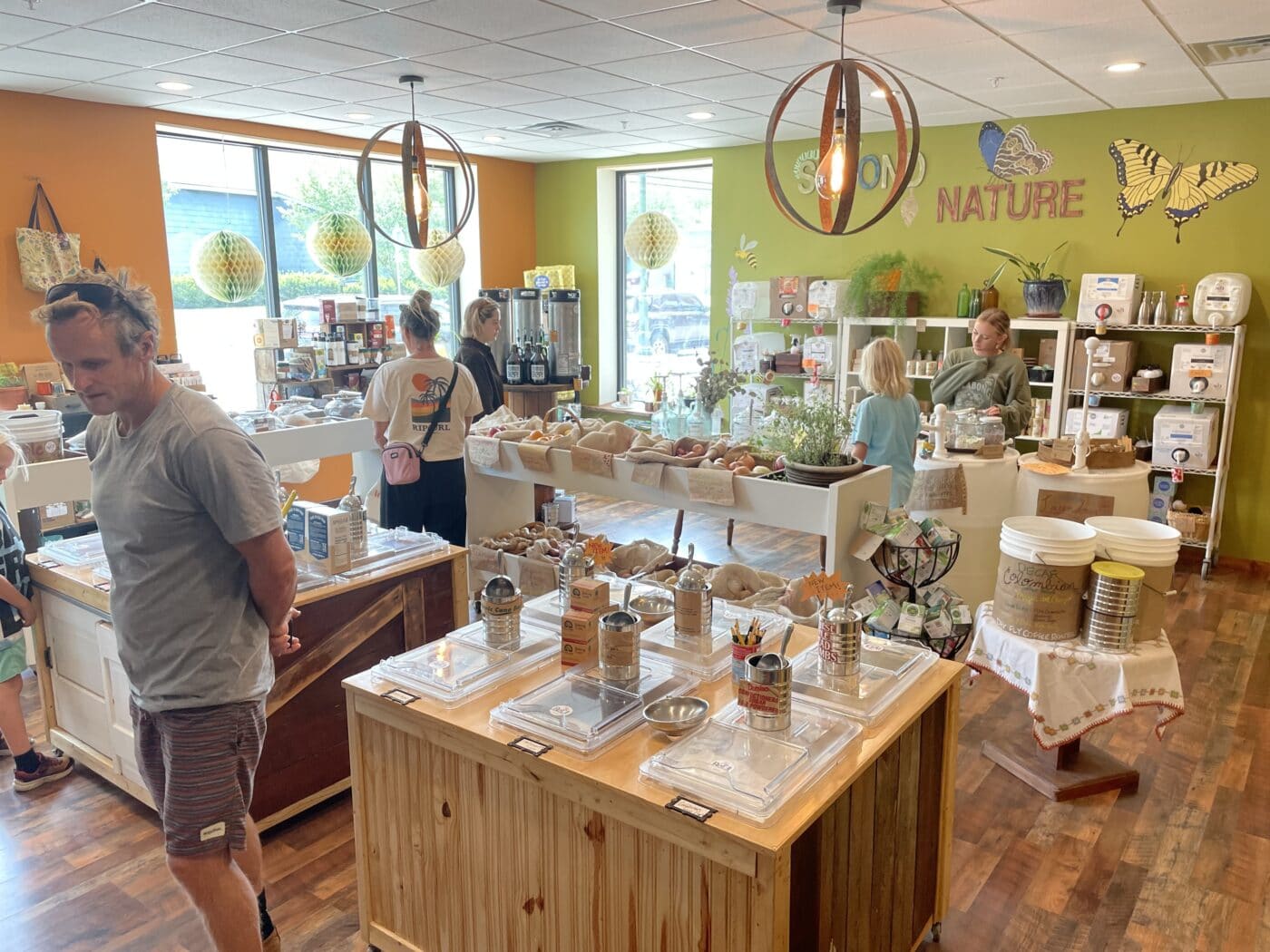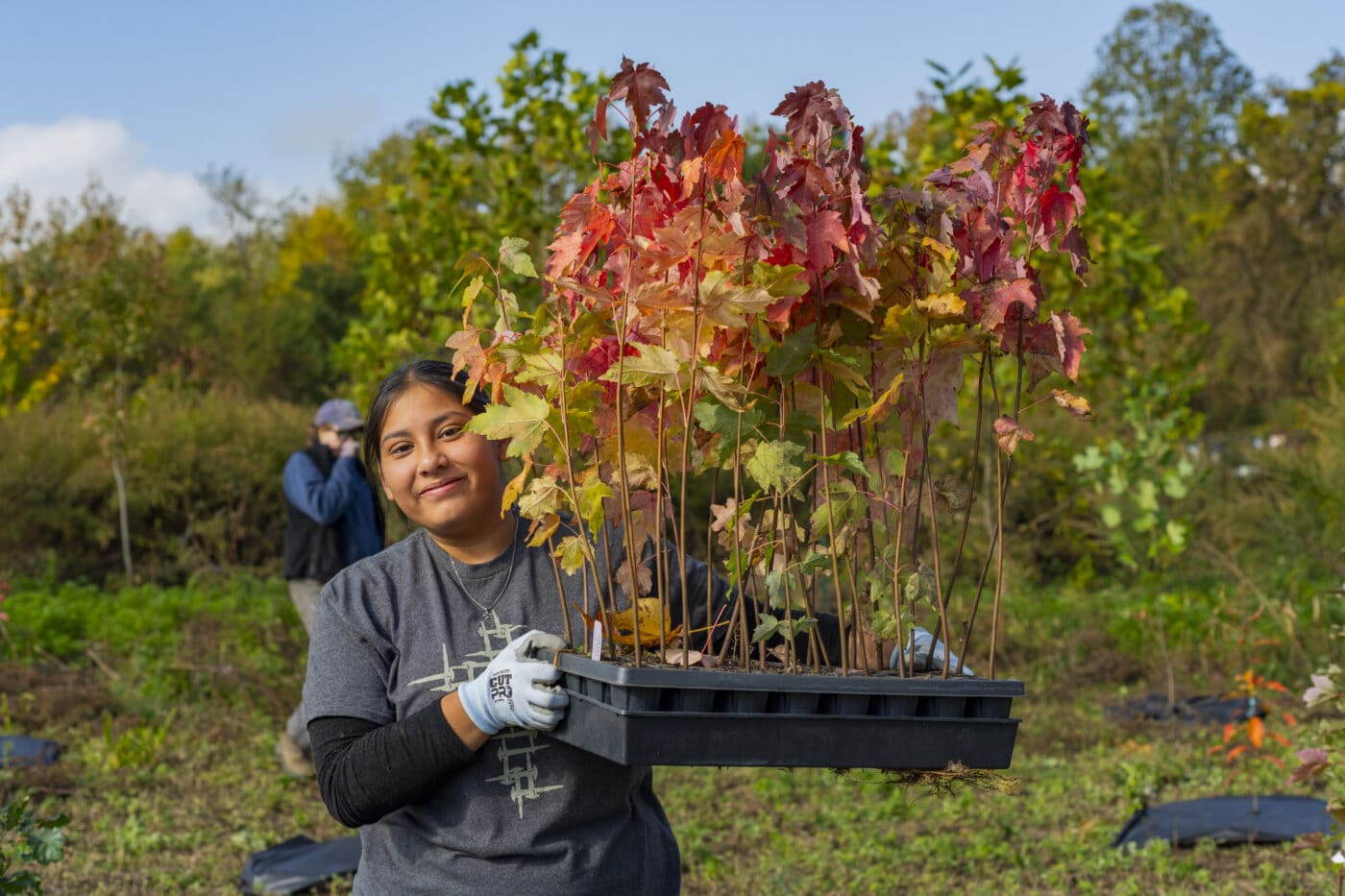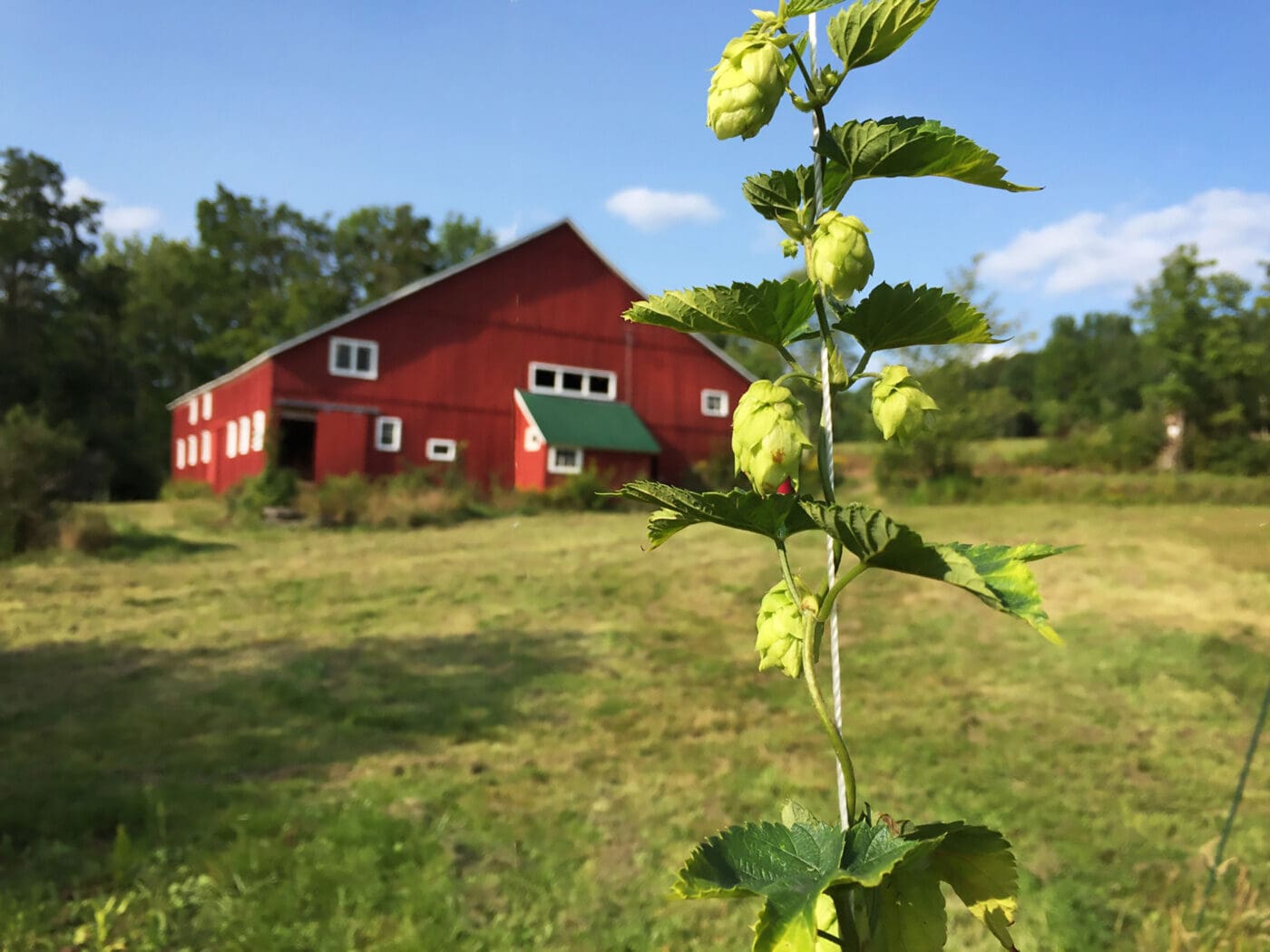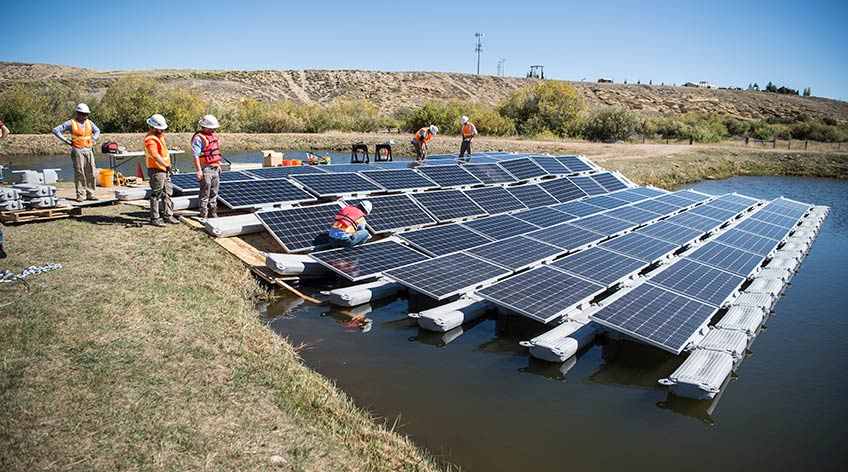The allure of waking up to a rooster’s crow and tending crops in a sun-drenched field has drawn American urbanites to the countryside for vacations since the late 1800s —a trend now known as agritourism. It encompasses all kinds of farm-related entertainment, from hay rides and corn mazes to an increasingly popular type of hospitality: the farm stay.

For guests, a farm stay is the chance to swap skyscrapers for silos and experience a charmed version of agrarian life. But for regional farmers, it’s become a much-needed break and boost from daily realities of running a farm, like performing hard labor and weathering financial stress. Data from the U.S. Department of Agriculture shows that revenue from agritourism tripled from 2002 to 2017 (the most recent year for which data is available).
Here’s a deeper look at how farm stays provide crucial support to regional family farms, open doors for aspiring farmers, and deepen visitors’ appreciation for the journey from farm to table.
Farm stays provide a financial lifeline for family farms
It’s hard to underestimate the impact visiting tourists have had on Hull-O Farms in Durham. The 240-year-old, seventh-generation family-run dairy farm fell on hard times when the price of milk plunged in the early 1990s. Sherry Hull, who owns the farm with her husband Frank, knew she had to make a change.

When a friend told her about a “farm vacation” he took in Vermont, it was Hull’s eureka moment. They already had an extra two-bedroom cottage on the property, so she got it ready for guests and asked a friend who worked at Cablevision on Long Island to hook them up with an ad for the experience, which would include trying your hand at milking cows and enjoying foods fresh from the farm.
“Within minutes of the blurb going up, the phone started ringing,” she says. “I think we were the only farm in New York State doing it at the time, and I had no idea it would be so interesting to people.”
While taking care of guests on top of running a farm took some getting used to at first, Hull says she has grown to love sharing the experience of farm life with tourists from around the world. These guests also provide revenue to keep the farm going and help buffer against the volatile economics of agriculture.
“It’s expensive to operate a farm,” Hull says. “We would’ve had to give up the farm if we didn’t start the farm stay vacation.”

Farm stays have become far more popular in recent decades. Today, more than 800 farms in New York State offer farm stays or other agritourism experiences. “We’ve been grateful to ride this farm stay vacation wave,” says Hull.
They help support new farms
Not only are farm stays supporting legacy farms, they also help newer farmers, like Jessica Jarrett of Lobster Hill Farm, find their footing. Two years after starting her dairy goat and pastured poultry farm in 2021, Jarrett expanded to a 75-acre Brewster property that happened to have a spare cottage. She decided to turn it into a farm stay and began renting it out through Airbnb in October 2023, giving guests the chance to interact with the animals and see regenerative farming in action.
“The farm stay plays a substantial role in supporting us revenue-wise, especially in the winter when we didn’t have any sales happening because we were new here and didn’t have enough stock to sell year-round,” she says.

Out of stock by November, Lobster Hill Farm’s only source of revenue last winter was the farm stay. That money went to purchasing hay to feed the goats when there was no fresh forage for them to eat. “It was a huge weight off our shoulders to have that money coming in,” Jarrett notes.
The farm stay at Lobster Hill has been a hit for guests, too. Jarrett says they’ve already had repeat guests and the feedback has been “nothing but positive.”
Staying on a farm deepens travelers’ appreciation for local food
Exposing guests to the bounty of the Hudson Valley is part of the mission at Wicked Finch Farm in Pawling, says co-owner Mariana Leung-Weinstein. To finance the upkeep of the home on a former 7-acre dairy farm after inheriting it, Leung-Weinstein and her husband turned it into an Airbnb in 2019 and began making jams from berries grown on the property and keeping beehives.

As a New York City resident, Leung-Weinstein has seen firsthand how important it is to learn where your food comes from. She works to share it with guests by creating personalized itineraries of local farms they can visit (like Dykeman Farm, just across the street from Wicked Finch). She’s also giving guests a taste of jams and honey produced on the property, and planning interactive jam-making workshops later in summer 2024.
“When you see it up close and personal and meet the people behind your food, you appreciate it so much more and seek it out long term,” says Leung-Weinstein.
In fact, 87% of travelers planned to buy more local and regional products after staying at farm stays, according to a survey from the U.S. Farm Stay Association. Changing attitudes around local food could have a positive ripple effect on regional farms, helping to keep them afloat through increased sales.

There’s some anecdotal evidence that agritourism experiences may even inspire future generations of farmers. Jarrett, who dreamed of becoming a farmer as a child but felt pushed into other jobs early in her career, recently hosted a field trip for homeschool students that included a cheesemaking class and a hike with leashed goats at Lobster Hill Farm. She was delighted when she received a text message with a photo of the students from their group leader the next day.
“One of the little girls had dressed exactly like me and brought her stuffed animals to school on leashes. Everyone else had dressed like a doctor or firefighter, but she saw farming as a reasonable career choice,” Jarrett says. “It turns out that I was the role model I didn’t even know I was looking for as a kid.”




